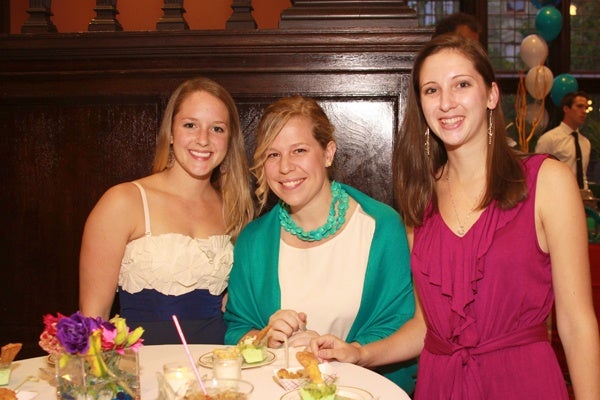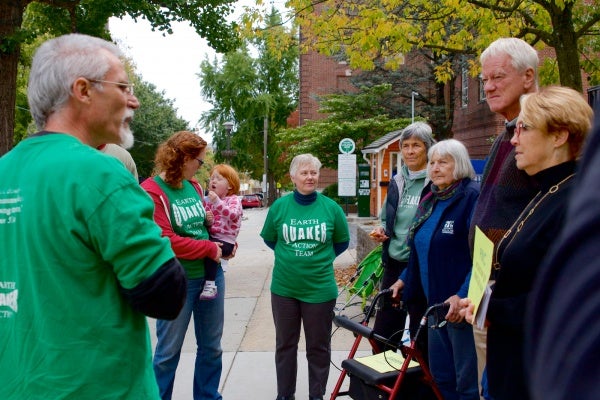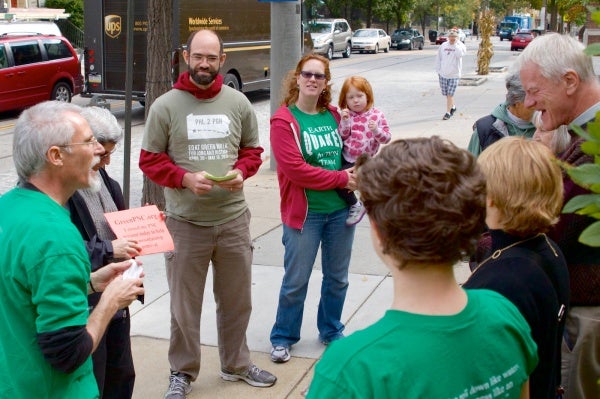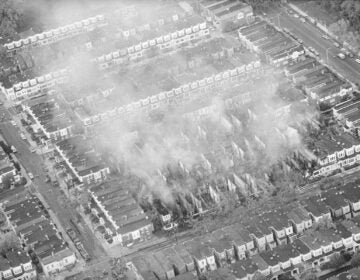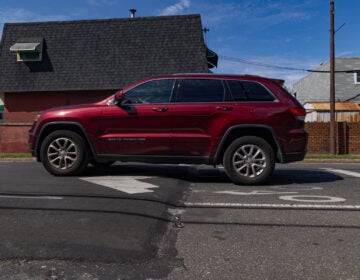Quaker group protests PNC Bank’s ties to controversial mining method
One account at a time. That’s how Earth Quaker Action Team (EQAT) hopes to to build a movement against the business practices of PNC Financial Services Group, Inc.
The environmental group wants PNC to break ties with coal companies that practice mountaintop removal, or MTR. To that end, the group organized a public demonstration outside of four PNC bank branches on Friday – two in Philadelphia, one on Pittsburgh and one in Gettysburg – as a means of supporting those that have decided to close their accounts in protest of PNC.
Sharon Mullally, a Mount Airy resident who has been banking with PNC since 1991, is one of two people who decided to close their accounts with PNC’s Chestnut Hill branch, 8340 Germantown Avenue, on Friday.
Mullally, a Quaker, said she became aware of the issue of MTR when she saw the film “The Last Mountain” at the Ritz Theatre.
“I’ve been paying attention,” she said. “I just can’t let them use my money to do that.”
For Laurie Barron, of Erdenheim, the decision to close all three of her accounts came after 40 years of banking with PNC.
Barron said she has long appreciated PNC’s services, but in the end “my conscience trumps convenience.” Barron, who is not a Quaker, shared that she has opened an account with nearby Valley Green Bank.
Once inside the bank, some EQAT members attempted to distribute informative calling cards paired with fair trade chocolate. They were stonewalled by three out of the four of the branch’s tellers, who claimed to be allergic to chocolate.
One teller announced that she had called police when Barron refused to stop holding a small sign announcing why she was closing her account.
Branch employees declined to comment for this story.
In the end, both Barron and Mullally managed to close their long-standing accounts without any pushback.
The group then moved on to protest in front of a PNC branch at Rittenhouse Square in Center City.
” A Leader in Eco-Friendly Development”
PNC’s website declares the institution to be “A Leader in Eco-Friendly Development” and makes proud claim to a Quaker heritage.
As a result, PNC “is a prime candidate” to be a leader in sustainable financial services, which encourage both green energy and economic justice, said Walter Hjelt Sullivan, EQAT’s Program Director.
In October 2010, PNC instituted a policy on MTR which stated that it would not provide funding to individual MTR mining projects nor lend to those coal producers whose primary extraction method is MTR.
EQAT maintains, though, that PNC’s MTR policy has not changed its business practices. “There are no coal companies who derive the majority of their coal from MTR,” stated EQAT’s Executive Director Amy Brimmer.
EQAT members say they do not want PNC to fail. “We’re hoping they’ll be the bank that say they are,” said Brimmer.
The loss in revenue from the closure of individual accounts doesn’t amount to much when compared to the profit PNC Bank turns through its financing of coal companies. Brimmer said EQAT is working towards a “snowball effect”, bringing greater awareness to the issue in hopes of it reaching a critical mass.
As a result, its not just individuals who are pulling their money out of PNC Bank. Quaker institutions are also beginning to divest. EQAT is also working with college students in hopes that those students will then have influence on which bank sets up shop on their campus.
Fred Solomon, a PNC spokesperson, noted that the financial institution is aware of EQAT’s position. He said “PNC lends in support of economic activity” which is providing tens of thousands of jobs in the Appalachian region.
Mountaintop Removal
Mountaintop Removal is a coal mining process whereby the tops of mountains are removed to expose seams of coal. The practice involves deforestation and then blasting with explosives before the coal can be excavated.
The practice is the most predominant form of coal mining in the Appalachian Mountain region. The leftover soil, rock and coal cleansing residue or “slurry” – laden with byproduct toxins such as lead, uranium, beryllium, arsenic and sulfates – is often dumped into nearby valleys and streams.
‘Here for the long haul’
EQAT formed in January of 2010 from a small group of concerned Quakers with a “strong desire to practice our faith in a tangible way,” said Brimmer.
Sullivan says EQAT is an on-going movement, not just a one time bank-transfer event. So long as PNC engages in what EQAT sees as financing climate change, the group intends to continue its educational outreach on the issue of MTR.
“We are here for the long haul,” said Sullivan
WHYY is your source for fact-based, in-depth journalism and information. As a nonprofit organization, we rely on financial support from readers like you. Please give today.


